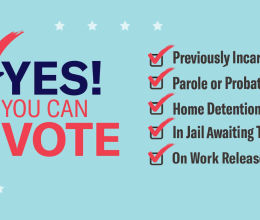Racial profiling lawsuit against Drug Enforcement Agency
Case Background
On August 9, 2007, the ACLU of Minnesota announced that a financial settlement has been reached in its long-running "flying while black" lawsuit against the federal Drug Enforcement Administration. Ms. Bonita Rhodes Berg, represented by the ACLU of Minnesota, settled her claims for a cash payment of $20,000. The DEA agreed to the settlement after losing repeated motions to have the case dismissed and after the DEA was forced to turn over data that the DEA itself had collected regarding airport stops and searches by DEA Special Agent Tammy Key. This settlement is believed to be the first of its kind involving the DEA.
Ms. Rhodes Berg was stopped by Agent Key after arriving at the Minneapolis-St.Paul International Airport on an early morning flight from Los Angeles in February 2001. The search of Ms. Berg's handbag revealed her Bible study materials and diet and cosmetics items. Ms. Rhodes Berg's commented on her experience saying, "This has been a long and stressful process and I am glad the lawsuit is over. I thank God that I had my attorneys, the ACLU of Minnesota, the support of my two sons, granddaughter, and members of my church, at St. Peter's AME, along with friends and former co-wokers at BNSF RR in St. Paul. The true test for me will be my return trip back to Minneapolis after flying to see my son in Los Angeles. Because of what happened, it has been six years since my last visit. Being stopped by the DEA made me afraid to fly and I worried about being stopped again. But now, if this was to happen to me again, I know I have the right not to answer questions regarding a cold drug stop by the DEA. I can say "no" with confidence and just walk away."
Minneapolis Attorney Tim Branson, who was part of the team of volunteer lawyers who represented Ms. Rhodes Berg, commented about the settlement saying, "The evidence - specifically the data that the DEA itself had collected in response to a presidential directive by then President Clinton - proved that Ms. Berg's allegations of racial profiling were well-founded." As summarized by Federal District Court Judge Michael J. Davis in his February 2, 2007 order denying the DEA's motion for summary judgment, the data the DEA had begun to collect in 2000 showed that 88 percent of the individuals "cold"-stopped by Agent Key at the Minneapolis-St. Paul Airport during the first 12 months of data collection were minorities. A "cold" stop is where a member of the traveling public is stopped based solely on a DEA agent's observation of the traveling person, which is in contrast to a "hot" stop where an individual is stopped based on a tip of other investigative information received before the stop. The data also showed that none of the individuals cold-stopped by Agent Key were white males, and that none of the overwhelmingly minority persons cold-stopped by Agent Key was found to be carrying drugs or drug money.
The written reasons Agent Key listed for her cold stops of Ms. Rhodes Berg and other African-American travelers were that they were traveling from drug "source" cities such as Los Angeles or Detroit, and carrying no bags, little baggage, or only a computer bag, a small carry-on bag, or a medium-sized heavy carry-on bag. The federal court found these innocuous reasons to be evidence of racial profiling. As Judge Davis ruled, "[c]ommon sense suggests that the ‘no bags,' ‘little bags,' ‘computer bags,' ‘heavy bags,' and other innocuous criteria upon which Key based her suspicions must apply equally to people of all races who deplane from source cities."
As part of the settlement, Ms. Rhodes Berg and the ACLU of Minnesota also secured the public release of certain data collected by the DEA, as well as information regarding the DEA's actions and inactions to remedy racial profiling. The release of this information could prove useful for others who might want to pursue the DEA for additional racial profiling data. The ACLU of Minnesota intends to share this information with the Council on Crime and Justice and with others upon request.
Please note: The documents that are listed under the "Briefs" category are not all official briefs. These documents were released by the DEA pursuant to the settlement.


